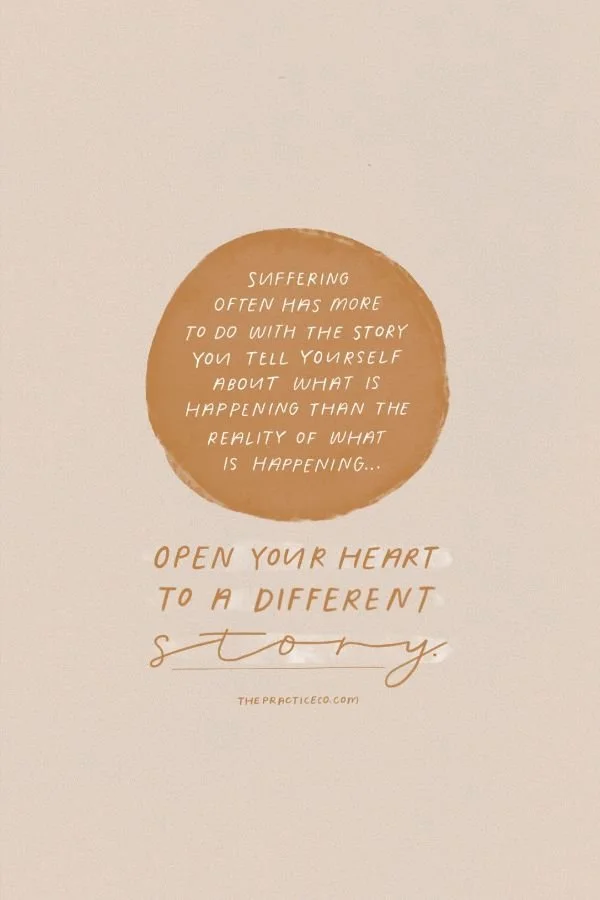You are not a failure if you ask for help
Asking for help is a spiritual practice.
It does not make you weak; it does not mean you've failed. We are biologically and psychologically wired for healthy dependence, to need each other, to give AND receive.
We have moralised giving and shamed needing.
Having a need isn't a problem to be fixed. It's a very normal and ordinary expression of the body, heart and mind. Let your needs be what they are with no fear or shame.
Mark Nepo said:
"'Perhaps the shortest and most powerful prayer in human language is help.' (Father Thomas Keating.)
A hardness we can't see, cold and rigid, begins to form between us and the world, the longer we stay silent about what we need. It is not even about getting what we need, but about admitting, mostly to ourselves, that we do have needs. Asking for help, whether we get it or not, breaks the hardness that builds in the world. Paradoxically, asking even for the things that no one can give, we are relieved and blessed for the asking. For admitting our humanness lets the soul break surface, the way a dolphin leaps for the sun.
One of the most painful barriers we can experience is the sense of isolation the modern world fosters, which can only be broken by our willingness to be held, by the quiet courage to allow our vulnerabilities to be seen. For as water fills a hole and as light fills the dark, kindness wraps around what is soft, if what is soft can be seen.
So admitting what we need, asking for help, letting our softness show—these are prayers without words that friends, strangers, wind, and time all wrap themselves around. Allowing ourselves to be held is like returning to the womb.
As you breathe, try to relax and soften your guard for these brief moments. Breathe slowly, and feel your pores open more fully to the world. Inhale deeply, and let the air and silence get closer. Inhale cleanly, and allow yourself to be held by what is."
Perhaps one of the reasons we find it hard to have needs and ask for help are the beliefs we've inherited and/or made for ourselves about the nature of humanity and the world we live in. When built on a foundation of scarcity, mistrust, and fear, it's no wonder we would be hesitant to allow our needs to be known, to ask for help, to be vulnerable enough to let our softness show. When we believe that the world is a hostile place, that we must earn our belonging and fight for a seat at the table, and to keep it, we will try to cover up our needs and scoff at the needs of others in an attempt to prove ourselves worthy.
Hear me now when I say this: Needlessness is not the goal. Having low needs does not make you holier, better, or more good. Tell me, can you switch off your humanity? Can you really stem the flow of your own capacity as it runs thin? Can you become immune to your nature of dependency?
The goal is acceptance, surrender, communion, and grace. You cannot make yourself more holy; you can only believe more and more that you already are, and that your needs are a part of that holiness. We can only return ourselves to the womb of being cared for, to the prayers we share with our friends, with strangers, with the wind, with the world, with and without words, letting our softness be what it is: a great strength not to be dismissed, quieted or shamed.
REMEMBER: "Admitting what we need, asking for help, letting our softness show—these are prayers without words that friends, strangers, wind, and time all wrap themselves around. Allowing ourselves to be held is like returning to the womb." Mark Nepo.
Written by Liz Milani
Instagram: @thepracticeco
From this week’s series "Find The Groud Beneath Your Feet" this week, with a subscription, in the App.


